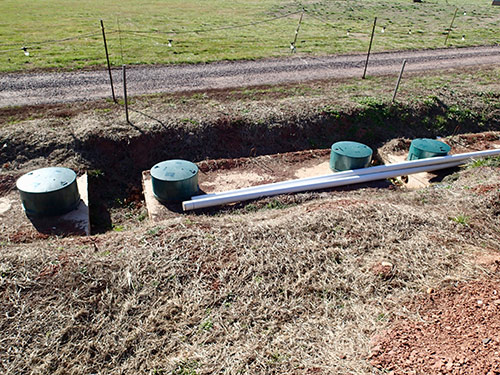
Your home’s septic system gives you the ability to live in a clean environment. When it malfunctions or when building a home, you need to consider what type of septic system you should get as a replacement. Below are the main differences between a conventional system and a mound system installation so that you can choose the one that fits best with your home.
Mound Septic Systems
A mound septic system installation involves creating an above-ground pile of sand or gravel to hide the components of the system. The system’s absorption area is above ground, so it uses an electric pump to bring the waste to the mound where it can be treated.
Mound system installations are suitable in areas where there is a high water table, bedrock, or a lack of soil to store the entire septic system below ground. However, due to the additional work required to build a mound, these systems are more expensive. They can also be an eyesore since they can’t be hidden by any trees; roots could damage the system. They require annual cleaning to make sure they are working efficiently.
Conventional Septic Systems
If the soil is deep enough and there isn’t a high water level, a conventional septic system can be installed beneath the surface, so there’s no need for a mound. Like the mound system, a conventional septic system installation involves a tank and a drain field. However, unlike the mound system, there’s no need for a pump since all components are underground. The septic tank holds waste as it removes the solids from the liquids. The drain field treats the wastewater and then drains it.
Conventional septic systems are preferred because they cost less to install. Inspections also occur every three years, less frequently than mound systems.
If you’re in need of a new septic tank, contact Morse Engineering and Construction.
Source: connect2local.com
